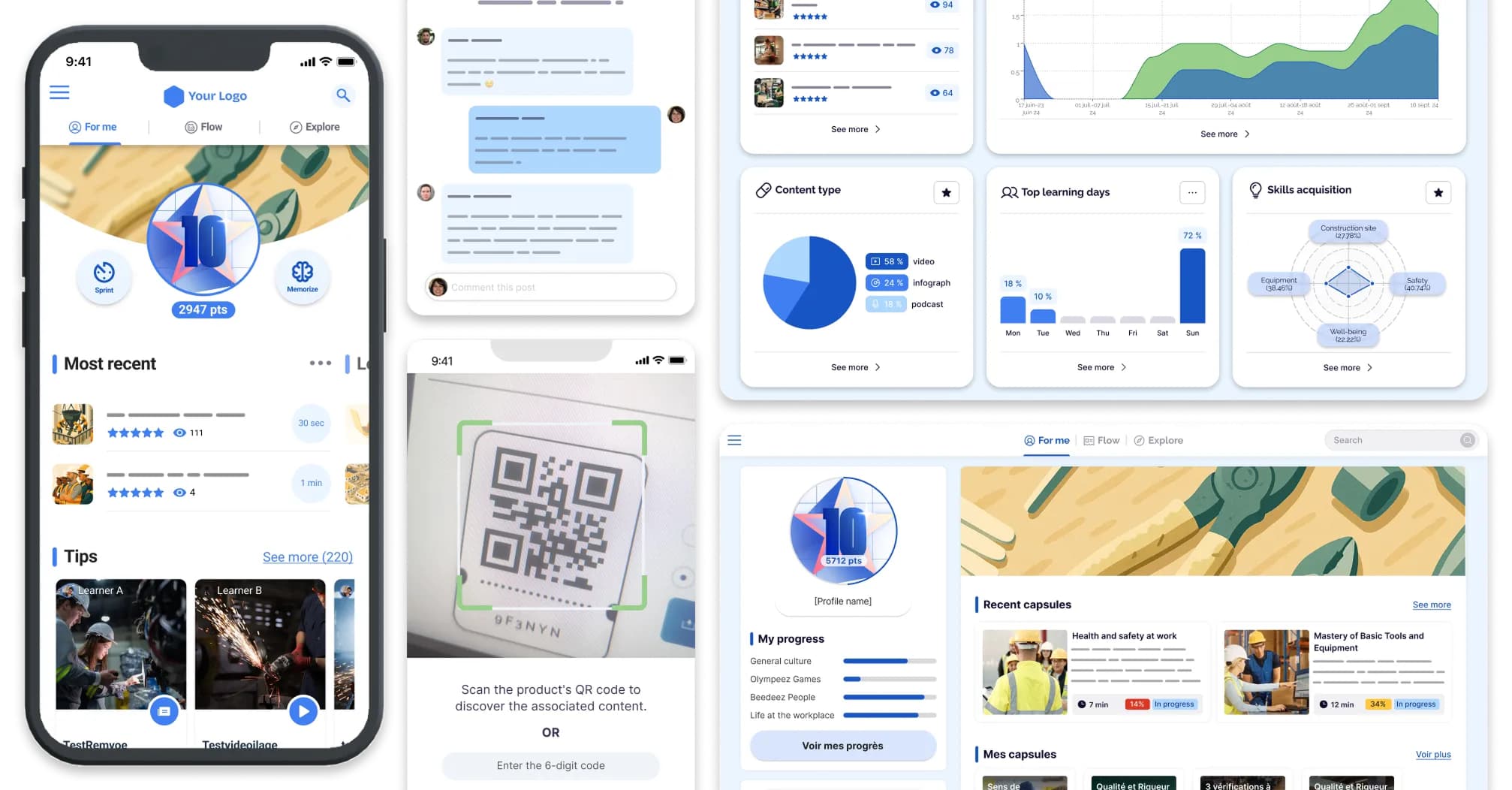Individuals born between 1997 and 2012 belong to Generation Z and are beginning to gradually integrate the labor market. The pandemic has had an economic impact on all generations, but Generation Z has been more severely affected by unemployment and precariousness. While their expectations remain close to those of millennials, trends are emerging, particularly in terms of vocational training.
So how can businesses meet the expectations of this Gen Z who is entering the workforce?
High expectations for diversity and inclusiveness
According to a survey conducted by the BBC in the United Kingdom, Generation Z is more sensitive to prejudices and discrimination towards LGBTQ+ people, to gender equality and to racism than previous generations.
A company's commitment to equality, diversity, and inclusion, and the transparency of its communication about it, are important criteria for Generation Z when evaluating hiring options.
Gen Z: Immediacy and Efficiency
A digital native, Generation Z is used to receiving information easily and immediately via search engines and social networks. So they want everything to go quickly.
As a result, a very immediate relationship with work. This in turn impacts the employer promise: to offer good working conditions, no sacrifice of personal time and a level of remuneration that satisfies them immediately.
Generating immediacy and the search for efficiency, it will be necessary for the company to ensure that it has cutting-edge equipment and techniques to allow Gen Z to flourish.
A generation driven by societal and environmental challenges
According to the 2023 Talent Barometer (SKEMA Business School and EY), for attract and retain their young employees, businesses will have to ensure the Respect for Ethics in economic activities (82%), atgender equality (74%) or the reduction of their impact on the environment (71%).
For the company, this means combining actions with words. So do not hesitate to talk about your CSR commitments in your job offers or to present your occupational health policy, for example, as soon as you are onboarding.
Ungovernable is Generation Z?
Don't worry, that's not the case at all! The hierarchical relationship is accepted but must be rethought from a less vertical, less formal angle.
More than a “leader”, Generation Z wants to be accompanied and guided by a manager who can trust them and quickly give them all the autonomy they need. Short-term goals and regular feedback will thus be more suitable for Z.
A desire to continue learning
Also according to the EY study, 70% of students consider that having the opportunity to continue learning is an important dimension for their first job. This desire for continuous training is explained by their desire to quickly become professional and develop new skills.
Among Generation Z, the vocational training trend is blended learning approaches. The learning modality in elearning is unsurprisingly very popular among Generation Z. It gives them more flexibility both in terms of schedule and location of training. The particularity of e-learning is that it puts the learner back at the center of learning, rather than the trainer. In systems that facilitate social learning, the learner can take on the role of both creator and consumer of content, while remaining at the center of the learning system.
Z learners prefer learning environments that are active, engaging, and cooperative. By promoting teamwork and interactions, Social Learning can help create a corporate culture more dynamic and more united, where each employee feels involved and appreciated. A real competitive advantage for businesses looking to recruit and retain the best Gen Z talent!




